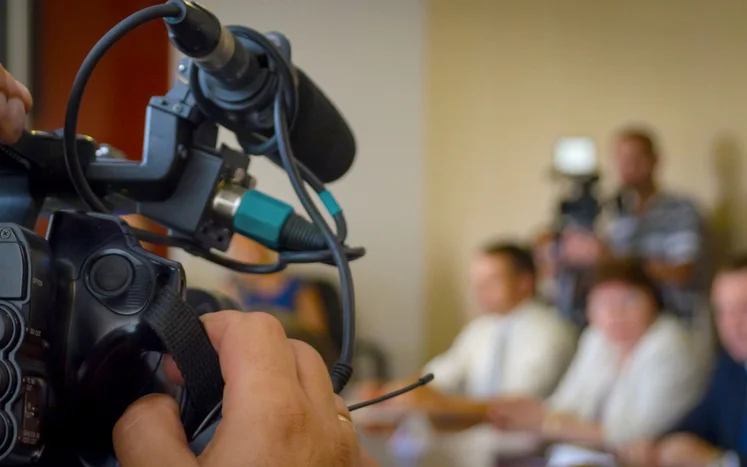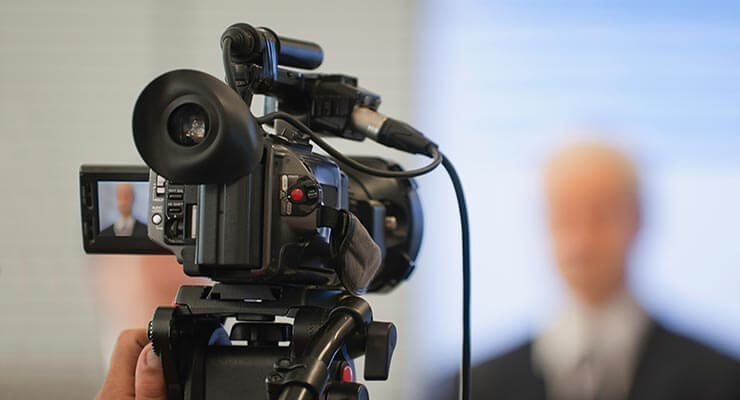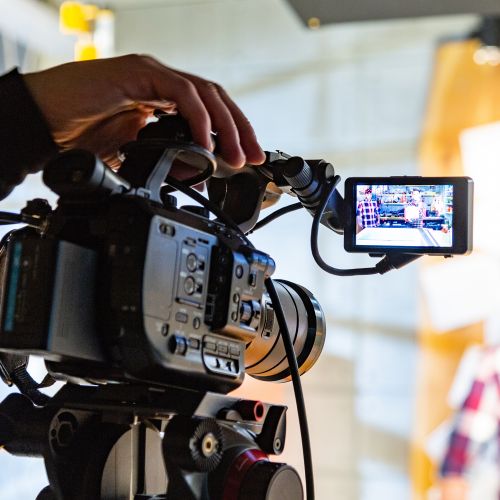Trusted Legal Videography for Reliable Case Support.
Trusted Legal Videography for Reliable Case Support.
Blog Article
The Function of Legal Videography in Depositions and Tests
Legal videography has actually emerged as a vital tool in both depositions and tests, providing a diverse strategy to documenting witness testaments. As legal professionals significantly identify its worth, it triggers a much deeper evaluation of exactly how these visual documents can influence juror assumptions and trial outcomes.
Significance of Lawful Videography
Legal videography plays a critical role in the paperwork and presentation of depositions and trials. This specific area incorporates technological skills with lawful understanding to develop a trustworthy document of procedures that can substantially influence situation outcomes. The aesthetic facet of lawful videography enhances the understanding of witness testament, enabling jurors and courts to observe not just the spoken words however likewise the demeanor, emotions, and body movement of the witnesses.

The importance of lawful videography extends beyond the courtroom; it additionally plays an essential duty in preserving proof for future recommendation, whether for allures or more legal action. Thus, its combination right into the legal process is necessary for guaranteeing a fair and accurate depiction of the realities, inevitably contributing to the pursuit of justice.

Process of Legal Videography
While recording the subtleties of depositions and tests, the process of lawful videography includes a number of important steps that make certain top notch, exact recordings. An expert legal videographer prepares by assessing the situation products and recognizing the particular requirements of the deposition or test. This preparation consists of acquainting themselves with the individuals and the context, which aids in capturing important information.
On the day of the recording, the videographer establishes up the required tools, which typically consists of high-def cams, microphones, and proper lights. Making sure optimum angles and sound top quality is critical, as it directly affects the effectiveness of the recording. The videographer connects with attorneys and participants to develop methods, guaranteeing that every person comprehends the recording procedure.
During the deposition or trial, the videographer meticulously records the process, paying close interest to both verbal and non-verbal cues. legal videography. This consists of recording the attitude and reactions of witnesses and lawyers. After the session wraps up, the videographer may modify the footage for clearness and conformity with lawful requirements, generating an end product that useful site accurately reflects the procedures for future referral and use in legal contexts
Advantages in Depositions
The incorporation of videography in depositions supplies numerous benefits that improve the total process of collecting evidence. One main advantage is the ability to catch witness testaments with visual and acoustic integrity, offering a more exact representation of the witness's temperament, tone, and body language. This multidimensional approach allows lawyers and courts see this here to assess integrity better than typical written records alone.
In addition, videographed depositions act as a powerful tool for maintaining testament. Needs to a witness ended up being not available for test, their tape-recorded deposition can be played in court, ensuring that their proof continues to be accessible and relevant. This aspect substantially minimizes the risk of losing important info that might influence case outcomes.
Additionally, using lawful videography advertises far better prep work for lawyers. Evaluating video footage allows legal teams to analyze and refine their methods, recognizing staminas and weaknesses in their cases. This primary benefit can result in more compelling presentations in court.
Lastly, videography boosts the general professionalism of the deposition process, instilling confidence in clients concerning the thoroughness of their lawful representation. By leveraging modern technology, lawyers can significantly enhance the effectiveness of depositions.
Effect On Trials
In several tests, the integration of videography can significantly affect the discussion of proof and the jury's browse around these guys perception. Legal videography catches witness statements and vital proof in a vibrant format, enabling jurors to involve with the material on several degrees. This aesthetic element enhances the narration aspect of a trial, providing context and psychological vibration that traditional text-based evidence may do not have.
In addition, video recordings can work as effective tools for impeachment throughout interrogation. When inconsistencies emerge between a witness's prior statements and their courtroom statement, video evidence offers an unbiased recommendation that can guide jurors' viewpoints. This immediacy and quality can bolster the reliability of a party's story while all at once weakening opposing debates.
In addition, using videography can help enhance intricate information, making it more obtainable to jurors that may struggle to understand detailed details offered solely through spoken testimony. By combining visuals with acoustic details, legal videography can improve retention and understanding, inevitably influencing the court's decision-making process. The impact of videography in tests expands beyond simple looks; it plays an essential duty in forming the lawful landscape and outcomes.
Future Trends in Legal Videography
As we look towards the future of legal videography, several arising patterns promise to improve its function within the court. One substantial pattern is the combination of expert system (AI) in video evaluation and editing - legal videography. AI can streamline the procedure of determining vital minutes in taped depositions, permitting attorneys to quickly access relevant material, thus enhancing performance in situation preparation
In addition, the surge of digital reality (VR) and enhanced reality (AR) modern technologies is expected to transform just how jurors experience proof. By submersing jurors in a simulated atmosphere, these innovations can provide a more extensive understanding of intricate circumstances, bring about more informed considerations.

In addition, the boosting need for remote depositions, increased by the COVID-19 pandemic, will likely continue. Legal videographers will need to adjust to brand-new software and platforms to make certain top notch recordings in online settings.
Last but not least, the expanding emphasis on data safety and security will demand more stringent procedures for keeping and sharing video proof. As the legal landscape evolves, legal videographers have to stay abreast of these trends to keep their significance and effectiveness in the judicial process.

Final Thought
In recap, legal videography serves an important feature in the judicial process, boosting the stability of depositions and trials. As innovation proceeds to progress, lawful videography is positioned to further change its role within the lawful landscape.
Report this page